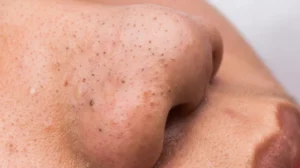How to Prevent Breast Cancer: 10 Scientifically Backed Ways to Reduce Your Risk
Breast cancer is one of the most common cancers affecting women worldwide — but the good news is that certain lifestyle choices can significantly reduce your risk. While no method guarantees complete prevention, science shows that adopting healthy habits can make a real difference.
Here are 10 evidence-based ways to lower your breast cancer risk.
1. Stay Physically Active
Regular exercise is one of the most effective ways to protect your body. Studies suggest that 150 to 300 minutes of moderate-intensity activity each week can help lower breast cancer risk, especially after menopause.
Pro tip: Walking briskly, cycling, or dancing all count as physical activity.
2. Maintain a Healthy Weight
Being overweight or obese — particularly after menopause — increases estrogen levels, which may fuel certain types of breast cancer. Aim for a balanced diet and regular physical activity to manage your weight.
3. Limit Alcohol Consumption
Alcohol is directly linked to an increased risk of breast cancer. Even small amounts (like one drink per day) can raise your risk over time.
SEO tip: Searching “how much alcohol increases breast cancer risk” often leads to this recommendation: the less, the better.
4. Eat a Balanced, Nutrient-Rich Diet
While no specific diet can prevent breast cancer, a plant-rich diet may offer some protection. Focus on:
-
Leafy greens and colorful vegetables
-
Whole grains
-
Berries and citrus fruits
-
Healthy fats (like olive oil and nuts)
Avoid highly processed foods, red meats, and added sugars when possible.
5. Quit Smoking (or Don’t Start)
Smoking is harmful in countless ways — and some research links it to an increased risk of breast cancer, especially in younger, premenopausal women.
Quitting smoking improves your health almost immediately and lowers your cancer risk over time.
6. Breastfeed, If Possible
Breastfeeding may slightly reduce breast cancer risk, particularly when continued for 6 months or more. It’s thought to help balance hormone levels and reduce lifetime exposure to estrogen.
7. Avoid Long-Term Hormone Replacement Therapy (HRT)
HRT used to treat menopause symptoms can increase breast cancer risk if taken for long periods. Talk to your doctor about alternatives, and always use the lowest effective dose for the shortest duration.
8. Be Aware of Your Family History
Genetic mutations like BRCA1 and BRCA2 significantly increase breast cancer risk. If you have a family history of breast or ovarian cancer, genetic counseling and testing may be recommended.
9. Get Regular Screenings and Mammograms
Early detection is key. Mammograms don’t prevent cancer, but they help catch it early when it’s most treatable. Follow your local guidelines and speak with your healthcare provider about when to start screening.
10. Reduce Exposure to Environmental Risks
Limit exposure to potentially harmful chemicals — including those found in certain plastics, pesticides, and household products. While research is still developing, it’s smart to choose natural or non-toxic options when possible.
Final Thoughts: Small Changes, Big Impact
While you can’t eliminate breast cancer risk entirely, the choices you make each day — from what you eat to how often you move — can significantly influence your health. Talk to your doctor about your personal risk and create a prevention plan that works for you.








